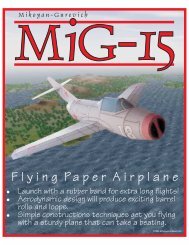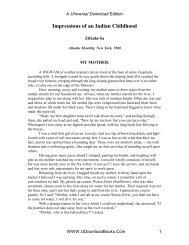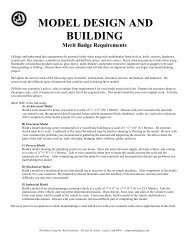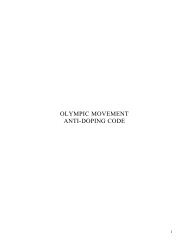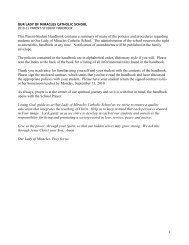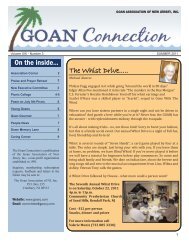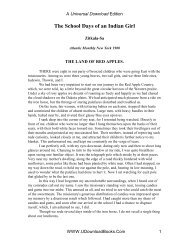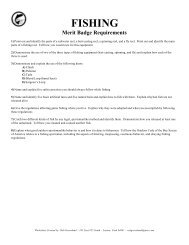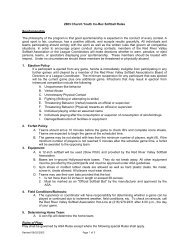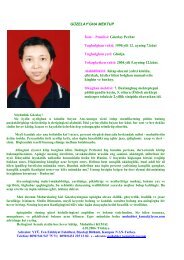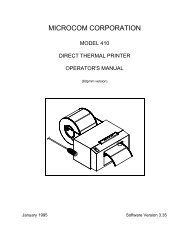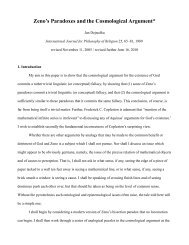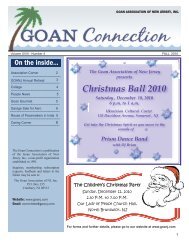Dummett's Backward Road to Frege and to Intuitionism - Tripod
Dummett's Backward Road to Frege and to Intuitionism - Tripod
Dummett's Backward Road to Frege and to Intuitionism - Tripod
Create successful ePaper yourself
Turn your PDF publications into a flip-book with our unique Google optimized e-Paper software.
thought in sense (2). And although that thought reflects or mirrors the essence of concepts (my 2003:<br />
xix, 31, 217, 272, 301), it is only one way of many <strong>to</strong> present the truth-condition in question. Thus<br />
there is no backward road from the truth-condition <strong>to</strong> it.<br />
Certainly we do not underst<strong>and</strong> the thoughts expressed by statements if we have no idea of the<br />
conditions which would make them true or false. But those very thoughts of the truth-conditions are<br />
intensional in sense (2), <strong>and</strong> the truth-conditions are graspable only via such thoughts. Indeed, the<br />
thought we grasp is the “idea” we have of the truth-condition.<br />
One might be tempted <strong>to</strong> say that where “F( )” expresses the sense ‘( ) is red’, the truth<br />
condition of “Fa” is a’s being red. That is what most of us would say. But can <strong>Frege</strong> say it? Our world<br />
of four objects shows that for <strong>Frege</strong>, the on<strong>to</strong>logical locus of objective redness as opposed <strong>to</strong> objective<br />
roundness is the realm of sense. And as this is a categorial matter, this is so in every possible world. Is<br />
the on<strong>to</strong>logical locus of the truth-condition of “Fa” then the realm of sense? Is it senses, not references,<br />
which make our sentences true? Except for cases of indirect reference, no. 12<br />
If we enrich L so as <strong>to</strong> include sentences expressing propositional attitudes, then thoughts<br />
would be logical parts of the truth-conditions of L, since thoughts are the indirect references of such<br />
sentences for <strong>Frege</strong>. And while only thoughts can be believed, <strong>and</strong> subsentential senses cannot be<br />
believed, presumably the subsentential senses composing believed thoughts must also be indirect<br />
references by parity of reason. But Dummett’s procedure would still fail for infinitely many languages<br />
L* which lack such sentences, <strong>and</strong> he gives no indication that he is thinking of this limited way out.<br />
And there is no backward road <strong>to</strong> the indirect senses which occur in cases of indirect reference. We<br />
would have <strong>to</strong> include sentences expressing second-order beliefs about beliefs, so as <strong>to</strong> make first-order<br />
indirect senses in<strong>to</strong> second-order indirect references, <strong>and</strong> so on for any n-level order of beliefs. Thus we<br />
would have <strong>to</strong> admit an infinite series of orders of indirect sense <strong>and</strong> reference. I think <strong>Frege</strong> allows<br />
<strong>and</strong> requires that (Dummett agrees, 1981a: 87). 13 But Dummett’s procedure would fail for infinitely<br />
22



